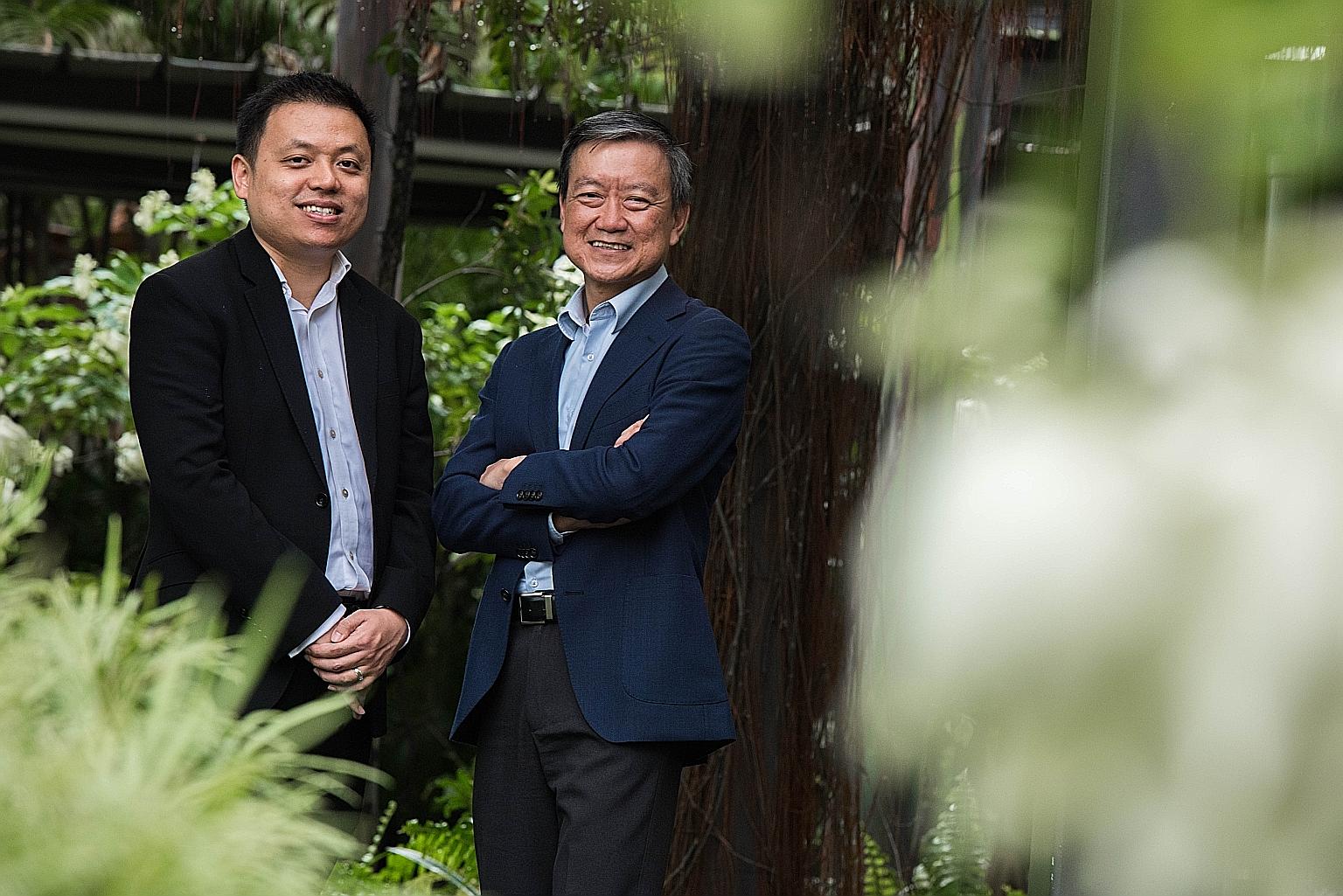Professional Deputies and Donees scheme launched
Individuals can pay for help to manage affairs should they lose their mental capacity in future
Sign up now: Get ST's newsletters delivered to your inbox

Lawyer Haryadi Hadi (left), 35, and chartered accountant Francis Chan, 56, are registered professional deputies. Professional deputies and donees must not be related to the person they are acting on behalf of, to avoid any conflict of interest.
ST PHOTO: SYAMIL SAPARI
Follow topic:
Individuals can now pay registered professionals, such as lawyers and social workers, to act on their behalf should they become mentally incapacitated in the future.
They can do so under the Professional Deputies and Donees scheme launched yesterday.
The scheme comes as families become smaller and a small but growing number of people, such as singles, may not have families or close friends to be their proxy decision makers, Minister of State for Foreign Affairs, and Social and Family Development (MSF) Sam Tan said at the launch.
Under the scheme, someone who is mentally sound can hire a person, called a professional donee, to make decisions on his behalf should he lose his mental capacity in the future, for example, through dementia.
The appointment is formalised through a legal document called the Lasting Power of Attorney (LPA). If an LPA is not done before the person loses his mental faculties, the courts can appoint a professional deputy to make decisions on his behalf.
These professional deputies and donees must not be related to the person they are acting on behalf of, to avoid any conflict of interest.
The Mental Capacity Act was amended in 2016 to allow for these paid deputies and donees.
The Ministry of Social and Family Development (MSF) said it will not regulate the fees charged by these professionals. The remuneration will be based on the scope of work for each client.
A professional donee and a person asking for the service have to agree on the fees, as the professional is hired while the person is still mentally sound.
For professional deputies, the court will decide if the fees proposed by them are reasonable.
An MSF spokesman said: "We will not be setting guidelines as we want this nascent industry to grow." She added that some people may not want to take up the role if they find the fee guidelines not to their expectations.
The ministry also said both the professional donees and deputies have to submit reports to the Office of the Public Guardian (OPG) to account for the decisions made and expenses incurred in carrying out their duties, among other things.
The OPG, which protects the interests of the mentally incapacitated, administers the scheme.
The MSF spokesman said there are enough safeguards to protect the mentally incapacitated.
For a start, only those from selected professions - such as lawyers, accountants, healthcare and social service professionals - who meet certain criteria and pass a certification course can apply to be registered as professional deputies. A professional deputy can also act as a professional donee.
The criteria include a good credit rating and no conviction for certain crimes, such as cheating.
The professions were chosen as they have the necessary skills and experience to competently handle decisions on behalf of the mentally incapacitated, said OPG.
They are also regulated, which means they have to meet certain standards of discipline, accountability and professionalism.
That aside, the OPG stressed it takes all complaints seriously and will take action against any donee or deputy who is found to have abused his powers.
So far, 13 people have been registered as professional deputies.
Lawyers interviewed by The Straits Times had mixed views on the lack of fee guidelines.
Lawyer Kwok-Chern Yew Tee said it would be difficult, if not impossible, to set guidelines as each case is different. "The immediate concern is overcharging. However, if nobody knows what is a reasonable fee, how do we ascertain what is overcharging? I think in time to come, with demand and supply, an equilibrium range (of fees) will evolve," she added.
Lawyer Ng Bin Hong, a professional deputy, felt that fee guidelines will be useful so that the professionals know if the fees they are charging are reasonable.

